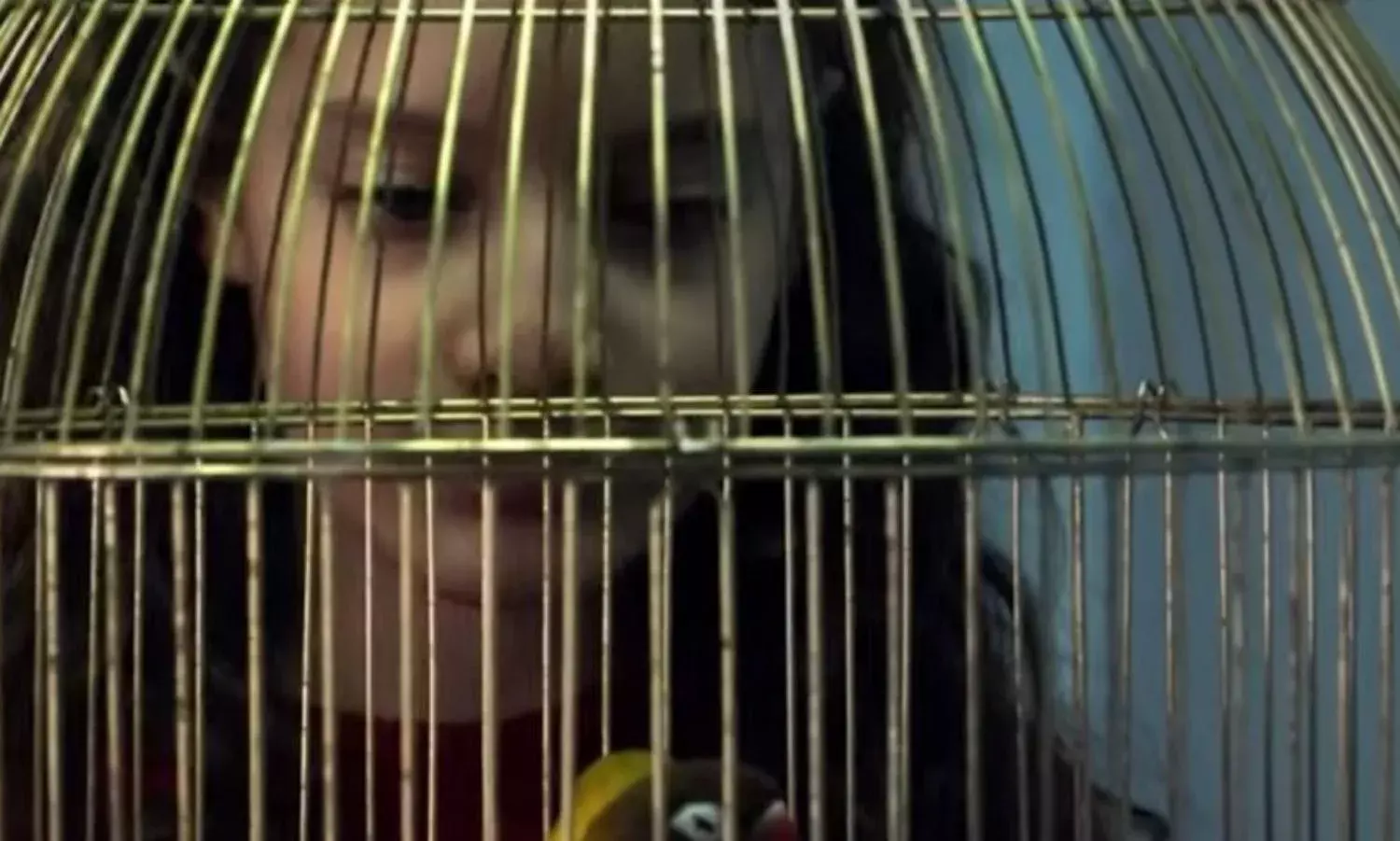The Present in Palestine
The Present (2020) directed by Farah Nabulusi

As Israel concludes another massacre of innocent Palestinians including children, world leaders issue more dead statements on witnessing a modern-day Holocaust in occupied Palestine.
The start of this new attack once again shows the dominance of the United States of America and Israel over almost the entire globe.
Israel hasn’t really been able to curb the artistic voices of Palestinians. Such art comes back like a bad penny for Israel.
Farah Nabulusi, a British-Palestinian Oscar and BAFTA-nominated filmmaker and human rights advocate, surely is a repository of such currency. Hers is a name that will remain in the bad books of the Zionist dominated politics of Israel, primarily because of her simple, sophisticated way of revealing minute aspects of Palestinian life under Israeli occupation through her realistic films.
Keeping the wheels turning with her 2020 release, The Present, a haunting and soul-stirring Oscar-nominated short film, Nabulusi once again waves the magic wand as she did in her other productions, Today They Took My Son, Oceans of Injustice, and Nightmare of Gaza.
The Present marks her directorial debut. It is the story of a labourer, Yusuf (played by the Palestinian actor Saleh Bakri) who along with his little daughter goes out to buy a wedding anniversary present for his wife. The story is bright-eyed and bushy-tailed, and describes the clear as mud situation of Palestine with utmost simplicity.
Lao Tzu said that simplicity is the ultimate sophistication, and nothing less can be said for this artistic piece. It dwells in the complexities of the Palestine situation in a father’s fervent struggle to buy some moments of joy for his family.
The film goes on to show how people of conflict don’t have the luxury to choose for themselves, as everything is filtered through oppressor’s scanner. The characters despite being stuck in a terrible war-like situation still search for moments of happiness and joy.
The story opens in a dark scene where Yusuf, the father, is about to go home from work, portrayed in bright spotight. This indicates hope and happiness in his life and the darkness of the harsh circumstances outside.
As he sets out to buy an anniversary present for his wife, along with his daughter Yasmine, a journey that was supposed to be a harbinger of joy turns ugly with the oppressors’ gaze. Scenes depicting the checkpoint reveal the inhuman treatment Palestinians meet at the hands of the Israeli army. Yusuf has to pass through a tight chamber like Checkpoint 300 in Bethlehem daily in order to go to work.
The emotions accompanying the film are all relatable, from a daughter giving her shopping list to her father or a romantic dialogue Yusuf shares with his wife, or the scene where his daughter plays with birds inside the shop. It’s all wrapped in ordinary apparel and this is one of the strengths of the film.
The innocent expressions of little Yasmine in the daughter’s role look totally pure and appealing. One can hardly take away eyes from her. Saleh Bakri’s chemistry with his character too is nothing less than perfect.
He is a handsome man with some issues in his back and frequently rests on painkillers. His back problem can be interpreted as the problem of occupation Palestinians have been resisting. One cannot stand properly and has to bend if the back isn’t sound, indicating that the people of Palestine cannot live with dignity under the Israeli occupation.
This is depicted in a scene where Yusuf pleads the Israeli army to let him go along with the refrigerator when it doesn’t fit inside the checkpoint tunnel.
The screenwriting too maintains an overall balance. The storyline is excellent and holds the viewers tightly. The ending scene is remarkably powerful. The protagonist’s frustrated outburst towards the end works well and one can relate with it as it comes as a reaction to what the Israeli soldiers make him go through. It doesn’t look staged or dramatized, and gives an impression of strong story telling.
The actor also gets good support from Mariam Kanj and Mariam Basha.
Though Israel may have stopped the bombings right now, artistic pieces like these wake us up to the reality of the continued occupation of Palestine, and re-emphasize the fact that even under a so-called ceasefire innocent people die. The genocide of their honour, innocence, privacy and happiness continues.
The Present is a film recommended to everyone to get a realistic picture of Palestinians’ life under occupation.
Asif Khan and Arbeena Shah are graduates in media studies from the University of Kashmir, and work as freelance feature writers and film reviewers



